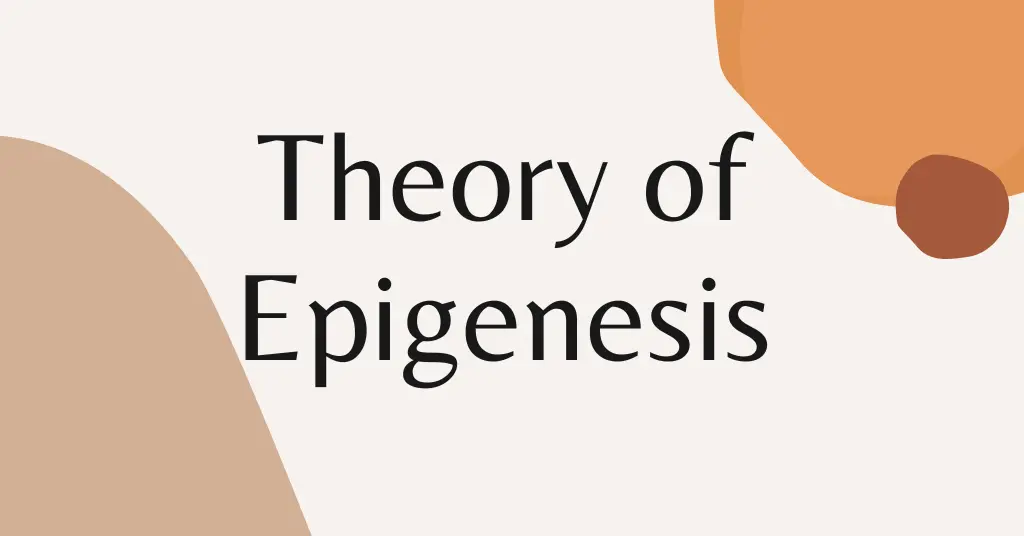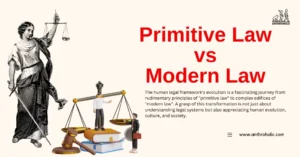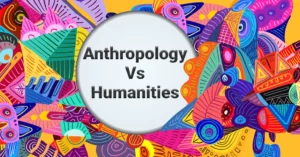AI Answer Evaluation Platform Live Now. Try Free Answer Evaluation Now
Theory of Epigenesis
The Theory of Epigenesis is a scientific concept that seeks to explain the origin and development of organisms through the gradual differentiation of cells. This theory suggests that organisms develop through a process of successive modifications, starting from a single cell to a more complex multicellular organism. The theory has played a significant role in shaping our understanding of embryonic development and the nature of inheritance. In this article, we will provide an overview of the theory of epigenesis, its historical background, and its significance in biology and genetics.

Historical Development of the Theory of Epigenesis
The Theory of Epigenesis has a long history dating back to the ancient Greeks, who believed that embryos developed gradually from an undifferentiated mass. This idea was later challenged by the Theory of Preformation, which claimed that organisms existed in miniature form within the egg or sperm. The discovery of cells and the microscope led to a renewed interest in Epigenesis, with scientists such as William Harvey proposing that new structures are formed during development. However, it wasn’t until the 18th century that the theory gained widespread acceptance, thanks to the work of Caspar Friedrich Wolff, who observed the development of chick embryos and proposed that organs arise through a process of progressive differentiation.
A. Aristotle’s views on embryonic development
Aristotle believed that embryos develop through a continuous process of epigenesis, where new structures arise from previously undifferentiated material.
B. William Harvey’s views on embryonic development
William Harvey was a proponent of epigenesis and believed that embryonic development involved the sequential differentiation of cells and tissues.
C. Caspar Friedrich Wolff’s views on embryonic development
Wolff believed that embryonic development involved the successive formation and differentiation of new parts, rather than just the growth and expansion of pre-existing parts.
D. Jean-Baptiste Lamarck’s views on embryonic development
Lamarck believed in the inheritance of acquired characteristics, where traits acquired during an organism’s lifetime could be passed down to its offspring.
Epigenesis and the Cellular Basis of Development
The theory of Epigenesis suggests that an organism develops from an undifferentiated egg cell, and that the cells differentiate and form organs and tissues through a process of cell growth and division. This process involves chemical signals and gene expression patterns that determine cell fate and differentiation. The cellular basis of development is the result of interactions between genes and the environment, which can lead to modifications in gene expression and cell differentiation. This concept of development contrasts with the theory of preformation, which held that an organism was fully formed within the egg or sperm, and only needed to grow and develop.
Epigenetic Inheritance and Evolution
Epigenetic inheritance refers to the transmission of heritable changes in gene expression that occur without alterations to the underlying DNA sequence. This phenomenon has been shown to play an important role in evolution, as epigenetic changes can be rapidly induced in response to environmental cues and can be stably inherited across generations. Such changes can also be subject to selection and thus contribute to the adaptive evolution of populations. This has led to the recognition of epigenetic inheritance as a key mechanism underlying the plasticity and evolvability of organisms, with important implications for understanding the processes of adaptation and speciation.
Criticisms and Controversies
The theory of epigenesis has faced criticism and controversy since its development. One of the main criticisms was that it lacked a clear mechanism for explaining how environmental factors could influence gene expression. Another criticism was that it did not account for the stable inheritance of traits across generations. Additionally, some scientists questioned the validity of epigenetic marks, suggesting that they might be the result of random chemical modifications. Despite these criticisms, recent research has shown that epigenetic marks play an essential role in regulating gene expression and that they can be stably inherited across generations.
Future Directions
The theory of epigenesis has opened new avenues of research in the field of biology and genetics. Recent advancements in epigenetic research have shown promising potential for the prevention and treatment of diseases. The future of the theory of epigenesis lies in further understanding of the mechanisms of epigenetic regulation, the impact of environmental factors on epigenetic changes, and the role of epigenetics in evolution. The development of new technologies and tools for epigenetic analysis and manipulation will undoubtedly expand our knowledge of epigenetic inheritance and the cellular basis of development, and will pave the way for new therapeutic strategies.
Conclusion
The theory of epigenesis revolutionised the understanding of embryonic development and inheritance. It continues to influence research in anthropology, genetics, biology, and medicine, and has significant implications for the study of evolution.
References
Hallgrímsson, B., & Hall, B. K. (2011). Epigenetics: linking genotype and phenotype in development and evolution. New York: University of California Press.
Jablonka, E., & Raz, G. (2009). Transgenerational epigenetic inheritance: Prevalence, mechanisms, and implications for the study of heredity and evolution. The Quarterly Review of Biology, 84(2), 131-176.
Gilbert, S. F., & Epel, D. (2015). Ecological developmental biology: Integrating epigenetics, medicine, and evolution. Sunderland, MA: Sinauer Associates.




